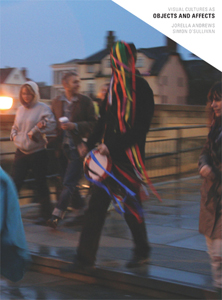Jorella Andrews and Simon O'Sullivan pay attention to the asignifying character of art, or simply its affective qualities.
Largely due to the “linguistic turn” that has dominated the humanities since the mid-twentieth century, many contemporary scholars and artists habitually equate works of art with highly coded texts to be deciphered, deconstructed, or otherwise interpreted. Here, meaning, value, and impact have been fundamentally linked to art's capacity to “speak,” to represent, to raise questions about representation, to convey a message, or articulate a concept. Much visual culture scholarship has tried to engage with art and the image-world outside of these logics.
Within this quest to consider art differently, Jorella Andrews and Simon O'Sullivan pay attention to the asignifying character of art, or simply its affective qualities. Drawing on the work of key thinkers (for O'Sullivan, the writings of
Gilles Deleuze, Félix Guattari, and Jean-François Lyotard) and turning to paradigmatic works of art (for Andrews, film and video pieces by Rosalind Nashashibi and Jayne Parker), they contextualize these art-related matters in relation to a significant recent rise in new thinking about objects, objectness, and objectivity within philosophy, critical theory, and ethics.
Jorella Andrews is a senior lecturer in the Visual Cultures department, Goldsmiths, University of London.
A theorist and artist working at the intersection of contemporary art practice, performance and continental philosophy, Simon O'Sullivan teaches at Goldsmiths, University of London.

